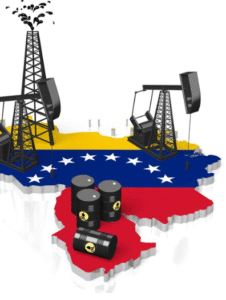# How Can the First Nigerian Gasoline Cargo to the U.S. Impact Your Fuel Prices?
In a notable development in the energy sector, the inaugural shipment of Nigerian gasoline, refined at the Dangote refinery, has successfully reached its destination in the United States. This event marks a significant milestone as it represents the first instance of Nigerian-refined gasoline landing on U.S. shores. The cargo, orchestrated by Sunoco and global commodity trader Vitol, hints at potential shifts in the global oil dynamics and pricing structures.
Understanding the Significance of the First Nigerian Gasoline Arrival
The arrival of this cargo, consisting of 320,000 barrels of gasoline, was meticulously tracked and verified. The Panama-flagged oil product carrier, Gemini Pearl, docked at the Port of New York last Sunday, symbolizing a new chapter in international trade and energy cooperation. The majority of this shipment has been acquired by Sunoco, while Vitol retains a portion for further distribution.
This strategic move by the Dangote refinery into the U.S. market could have several implications. For starters, it diversifies the sources of gasoline in the U.S., potentially stabilizing supply and moderating price volatility. Moreover, as global supply chains realign, the entrance of new players such as Dangote could usher in more competitive pricing and efficiency in operations.
Impact on U.S. Fuel Prices
The introduction of Nigerian gasoline into the U.S. market raises questions about its direct impact on fuel prices at the pump. Typically, the diversification of supply sources helps in cushioning domestic markets from localized spikes in fuel prices due to geopolitical tensions or supply disruptions. Therefore, this new supply line from Nigeria could contribute to greater stability in U.S. fuel prices, offering consumers potentially lower or more stable prices.
Furthermore, the efficiency and capacity of the Dangote refinery, which is slated to be one of the world’s largest, suggest that future shipments could be on a larger scale, further influencing U.S. fuel economics. The competitive pricing of this gasoline might pressure other suppliers to recalibrate prices, potentially benefiting the end consumer.
Broader Economic and Geopolitical Implications
The entry of Dangote refinery products into the U.S. market is not just a business transaction; it carries broader economic and geopolitical weight. This move signifies a strengthening of trade ties between Nigeria and the United States, which could lead to more integrated energy policies and collaborative economic strategies.
Additionally, this could alter the dynamics of oil dependency, reducing the hegemony of traditional oil-exporting giants and redistributing power within the global oil market. Such a shift could lead to more balanced global oil politics and an enhancement of energy security, particularly for nations heavily reliant on imports.
Conclusion: Monitoring the Long-Term Effects
While the immediate effects on fuel prices might be subtle, the long-term implications of Nigeria’s entry into the U.S. gasoline market are worth watching. As the Dangote refinery ramps up production, its impact on global oil markets and U.S. domestic fuel prices will become clearer. For now, consumers and market analysts alike should monitor how this new player alters the landscape of global energy.
For deeper insights into stock movements and energy sector trends, you can explore more articles on our stock category page. This development might just be the beginning of a significant transformation in the global oil market, heralding a new era of energy distribution and geopolitical alliances.











Comments are closed.